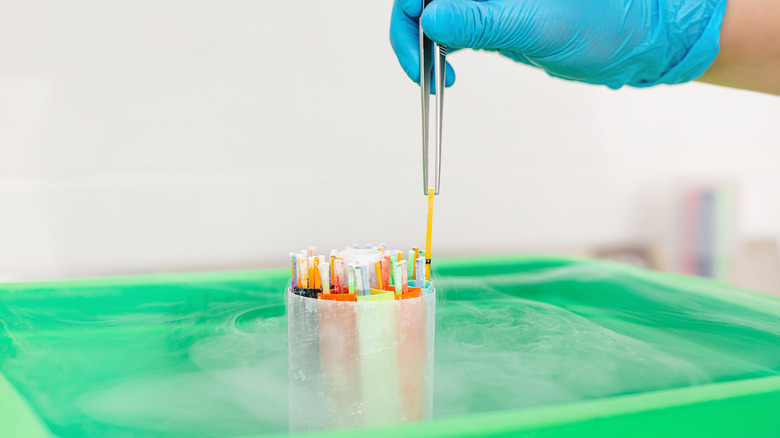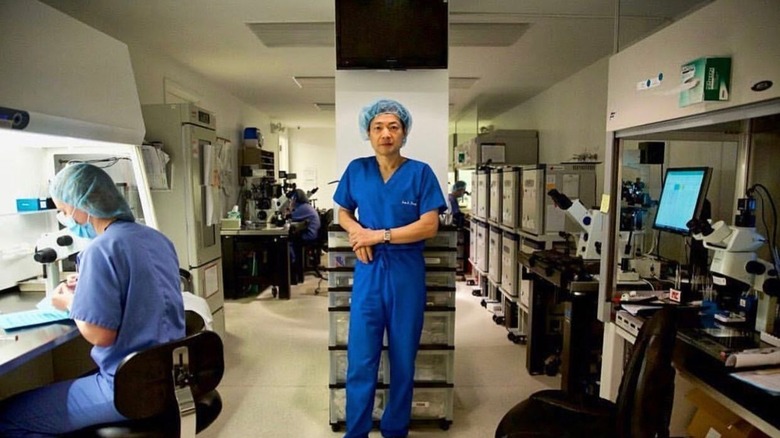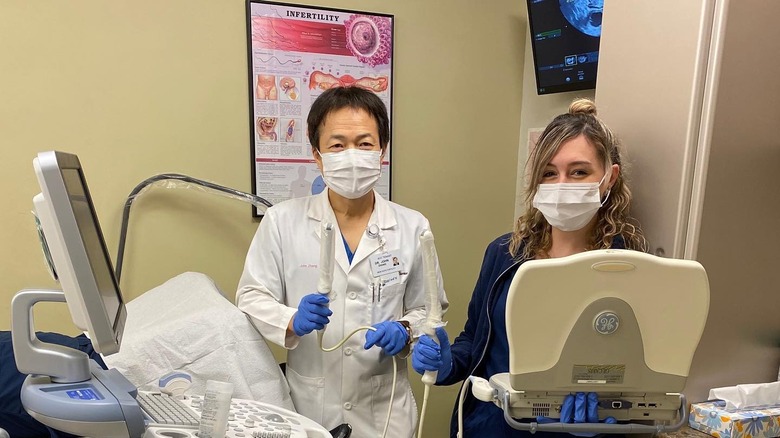IVF Specialist Dr. John Zhang On What Fertility Treatments May Look Like In A Post-Roe World - Exclusive
The Dobbs v. Jackson Women's Health Organization Supreme Court decision, which overturned the federal protection for abortion from Roe v. Wade, will have widespread impacts on reproductive healthcare. Many of those impacts still aren't clear, like how the decision could change assisted reproductive technologies like in vitro fertilization (IVF).
According to Dr. John Zhang, an IVF specialist and the founder and medical director at New Hope Fertility, if states with abortion bans decide that life begins at conception, the process of IVF will have to change significantly. Conventional IVF involves the creation of multiple embryos and the destruction of embryos that aren't likely to lead to a successful pregnancy. However, if states codify the belief that life begins at conception, destruction of those non-viable embryos could be considered a termination of life — and therefore illegal.
In an exclusive interview with Health Digest, Dr. Zhang revealed how fertility treatments might have to change in a post-Roe world and what options will be available to people relying on IVF to conceive.
How IVF may have to change
Dr. John Zhang stressed that even if states with abortion bans do decide that destroying non-viable embryos counts as terminating a life, that doesn't mean that the entire process of IVF will be banned. But doctors and patients will have to adjust the fertility process leading up to IVF. Instead of focusing on stimulating the ovaries to create as many eggs as possible so that several eggs can be fertilized and potentially produce viable embryos, doctors will have to tailor fertility treatments to ensure that just a few high-quality eggs are produced and fertilized.
"Minimal stimulation of your ovaries for IVF will be a perfect option that focuses on the quality over quantity of eggs. This treatment only makes the embryos you need to build your family," Dr. Zhang explained. "We need to do precision medicine to have the medical treatment tailored to each individual need. If they only want to have one child, then you will only produce one or no more than two embryos at a time."
Producing just a few embryos per round of IVF eliminates the need to destroy non-viable embryos or freeze embryos that will never be implanted. However, creating just a few high-quality embryos is a difficult task that will require doctors to work very closely with their patients.
New treatments that fit in a post-Roe world
Luckily, fertility clinics like Dr. John Zhang's New Hope Fertility are continuously developing innovative fertility treatments that fit in a post-Roe world. Mini or Micro IVF is a great example of how fertility treatments can be modified to minimize the number of embryos produced and eliminate the need to destroy embryos, according to Verywell Family. The Mini IVF protocol uses smaller amounts of fertility drugs than conventional IVF to minimally stimulate the ovaries. This results in fewer eggs per cycle, but each egg is of higher quality. The highest quality eggs are then chosen to create a few embryos.
Another option is Natural IVF, which uses the egg that's naturally produced during ovulation rather than stimulating the ovaries to create several eggs, according to a paper in the Journal of Assisted Reproduction and Genetics. The focus of Natural IVF is on making the naturally produced egg as high-quality as possible. That natural egg is then harvested and fertilized to produce an embryo — so no extra embryos are created with Natural IVF.
Unfortunately, not all people who need IVF to conceive will have good results with Mini, Micro, or Natural IVF. The success rates are typically lower, and the success rates can drop if egg quality is an issue. However, these options, and others, make it likely that IVF will still be accessible even in states with restrictive abortion bans.
For more information, please visit the New Hope Fertility website at www.newhopefertility.com.



